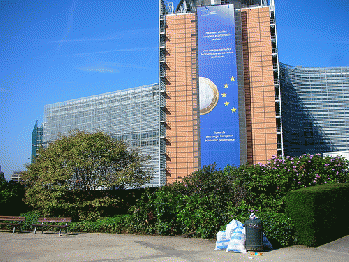When European Union President Jean-Claude Juncker addressed the European Parliament in Strasbourg this past September, he told them the organization was facing an "existential crisis" and "national governments so weakened by the forces of populism and paralyzed by the risk of defeat in the next election."
Indeed it has been a bad year for the huge trading group:
- The "Brexit," or the United Kingdom's vote to withdraw.
- Rome's referendum to amend the country's constitution was trounced, and several Italian banks are in deep trouble.
- The austerity policies of the EU have kept most of its members' economies either anemic or dead in the water. Even those showing growth, like Ireland and Spain, have yet to return to where they were before the 2008 economic melt down. Between 2007 and 2016, purchasing power fell 8 percent in Spain and 11 percent in Italy,
It is also true that number of national governments -- in particular those in Germany and France -- are looking nervously over their shoulders at parties to their right.
But the crisis of the EU does not spring from "populism," a term that many times obscures more than it reveals, lumping together neo-fascist parties, like France's National Front and Germany's Alternative for Germany, with left parties, like Spain's Podemos. Populism, as Juncker uses it, has a vaguely atavistic odor to it: ignorant peasants with torches and pitchforks storming the citadels of civilization.
But the barbarians at the EU's gate did not just appear out of Europe's dark forests like the Goths and Vandals of old. They were raised up by the profoundly flawed way that the Union was established in the first place, flaws that did not reveal themselves until an economic crisis took center stage.
That the crisis is existential, there is little doubt. In fact, the odds are pretty good that the EU will not be here in its current form a decade from now -- and possibly considerably sooner. But Juncker's solutions include a modest spending program aimed at business, closer military ties among the 28 -- soon to be 27 -- members of the organization, and the creation of a "European Solidarity Corps" of young volunteers to help out in cases of disasters, like earthquakes. But there was nothing to address the horrendous unemployment rate among young Europeans. In short, rearranging the Titanic's deck chairs while the ice looms up to starboard.
(Note: You can view every article as one long page if you sign up as an Advocate Member, or higher).






